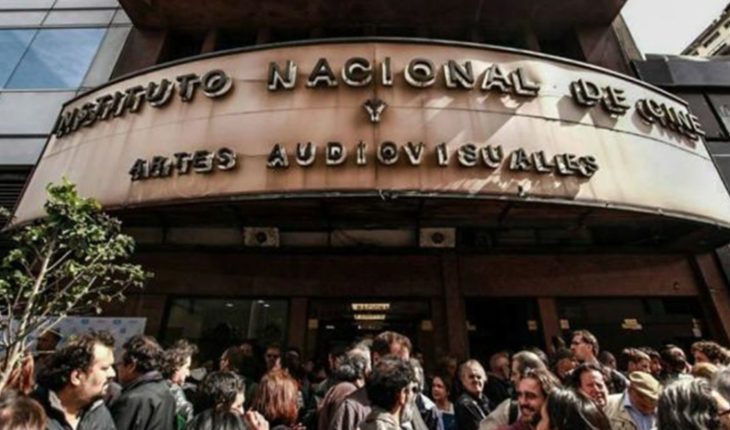Throughout the year, productions such as “The Tale of the Weasels” , “The Same Blood”, “4X4” or “The Giles Odyssey” were released on the national billboard. However, only the last one reached one million viewers. This picture is not coincidental: it responds to a deep crisis in Argentine cinema, which denotes an abandonment of state policies for the promotion and competition against “tanks”, that is, with other international and commercial productions. For this reason, yesterday afternoon the Argentine Audiovisual Community and different groups of the film industry came together to make a mobilization at the gates of Gaumont cinema, in defense of national productions. To understand more details of the reasons driving the march and what the current outlook they have to face, Filo.News spoke with Alejandro Rath, a member of the Collective of Filmmakers.
Of the 900 screens that exist in Argentina, they are mostly led by commercial premieres. Such is how, among the highest-grossing, are “The Lion King”, with 3,494,122 spectators, “Toy Story 4”, with 6,615,228, and the most recent “Once Upon a Time… in Hollywood,” with 273,098 viewers. As Rath explains, the exhibition and distribution process goes through a process of “concentration in foreign distributors and in multi-screen commercial rooms”, which resulted in Hollywood films in some cases occupying more than 85% of the theaters of the country. One of them was “Avengers: Endgame”, which was released in 709 theaters and sold 1,625,000 tickets in the first weekend.” We believe that there should be active policies on the part of the state to regulate the exhibition and distribution, invest strongly in the dissemination of national cinema and use the public media system for this as well,” he explains in reference to “tanks” and warns: ” If this plan persists, viewers will have access to less and less diversity and cinema will be reduced to a niche consumption of those who can afford expensive tickets”In front of this, from the Collective reaffirm: “We believe that cinema is a good cultural and that the state must ensure access to it by having a policy of opening rooms in the neighborhoods at popular prices and taking control measures and screen quota for the national cinema of 30% in commercial theaters”.
In relation to the oppression of the state in Argentine cinema, days ago the premiere of the film “Escuela Bomba” was canceled, which portrayed the teaching conflict over the gas explosion at 49 school in Moreno. “It is a very serious and unprecedented fact that the premiere of a film that has already been confirmed is suspended. Obviously this government does not want to see this material that denounces its policy of disinvestment and attack on the public school,” he says. However, the film was screened at the door of the Gaumont cinema, in front of the eyes of dozens of viewers. “The closure of any space that has a diverse programming is a blow to independent cinema. Not only because it’s a less space to showcase our films, but because it further reduces the film offering and concentrates it on very few titles mostly from Hollywood,” he continues. He then adds: “Our success will be given by being able to splice with the more general fight against that adjustment. What happened to the reaction to the censorship of School Bomb marks the way to how we have to intervene so that our claims gain visibility and the public take them into their hands as well.”
In addition, in recent days the closure of the BAMA was confirmed, one of the classic cinema spaces of Buenos Aires, located meters from the Obelisk, which operated since the late 70s and was known as “El Arte”. After this process, independent cinema is the one that is most affected: “It is being strongly attacked by this management and can disappear. Not so national commercial cinema. We have this difference with the point of the DAC which is expressed above all at one point in its statement that speaks of privileging quality over quantity. That’s what INCAA’s management aims to do, fewer films with higher budgets.” We believe that cinema is a cultural, non-commercial good and that access to the promotion of new independent filmmakers and filmmakers must be guaranteed and that quantity generates quality,” he concludes. In this note:





